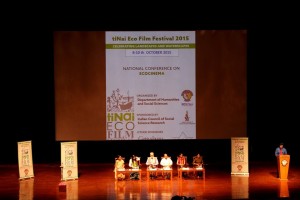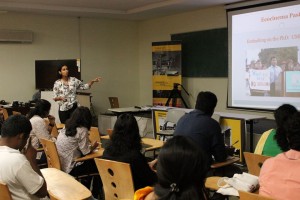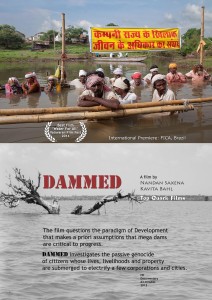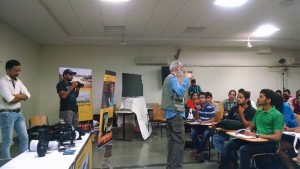Music and the Moving Image XI
Conference at NYU Steinhardt, May 27th – 29th, 2016
CALL FOR PAPERS
The annual conference, Music and the Moving Image, encourages submissions from scholars and practitioners that explore the relationship between music, sound, and the entire universe of moving images (film, television, video games, iPhone, computer, and interactive performances) through paper presentations.  This year music editor Nancy Allen (Black Swan and Lord of the Rings: The Fellowship of the Rings) will deliver the keynote address and we invite abstracts that focus on the role and function of music editing as well as all other topics.  Abstracts or synopses of papers (250 words) should be submitted to: mamicon2016@gmail.com by no later than December 15th, 2015.
The Program Committee includes Liz Greene (Co-editor of Palgrave Handbook of Sound Design and Music in Screen Media: Integrated Soundtracks – forthcoming in Palgrave Macmillan), Lea Jacobs (Author of Film Rhythm After Sound: Technology, Music, and Performance), Emilio Sala (“For a Dramaturgy of Musical Reuse in Silent Cinema: The Case of Cabiria (1914)” in Film Music: Practices, Theoretical and Methodological Perspectives), and coeditors of Music and the Moving Image, Gillian B. Anderson (Haexan; Pandora’s Box; Composing for the Cinema, Music for Silent Film 1892-1929: A Guide); and NYU faculty, Ron Sadoff (The Moon and the Son: An Imagined Conversation; Chuck Jones: Memories of Childhood). The conference will run prior to the NYU/ASCAP Film Scoring Workshop in Memory of Buddy Baker (June 1 – 10, 2016).
MaMI Conference website:Â http://steinhardt.nyu.edu/music/scoring/conference/
E-mail mamicon2016@gmail.com for more information.
Conference fee: $185.00 — students: $85.00; NYU Housing Available
Music and the Moving Image
New York University
An exciting new book by Matthew Schneider-Mayerson entitled Peak Oil: Apocalyptic Environmentalism and Libertarian Political Culture has been published by the University of Chicago Press.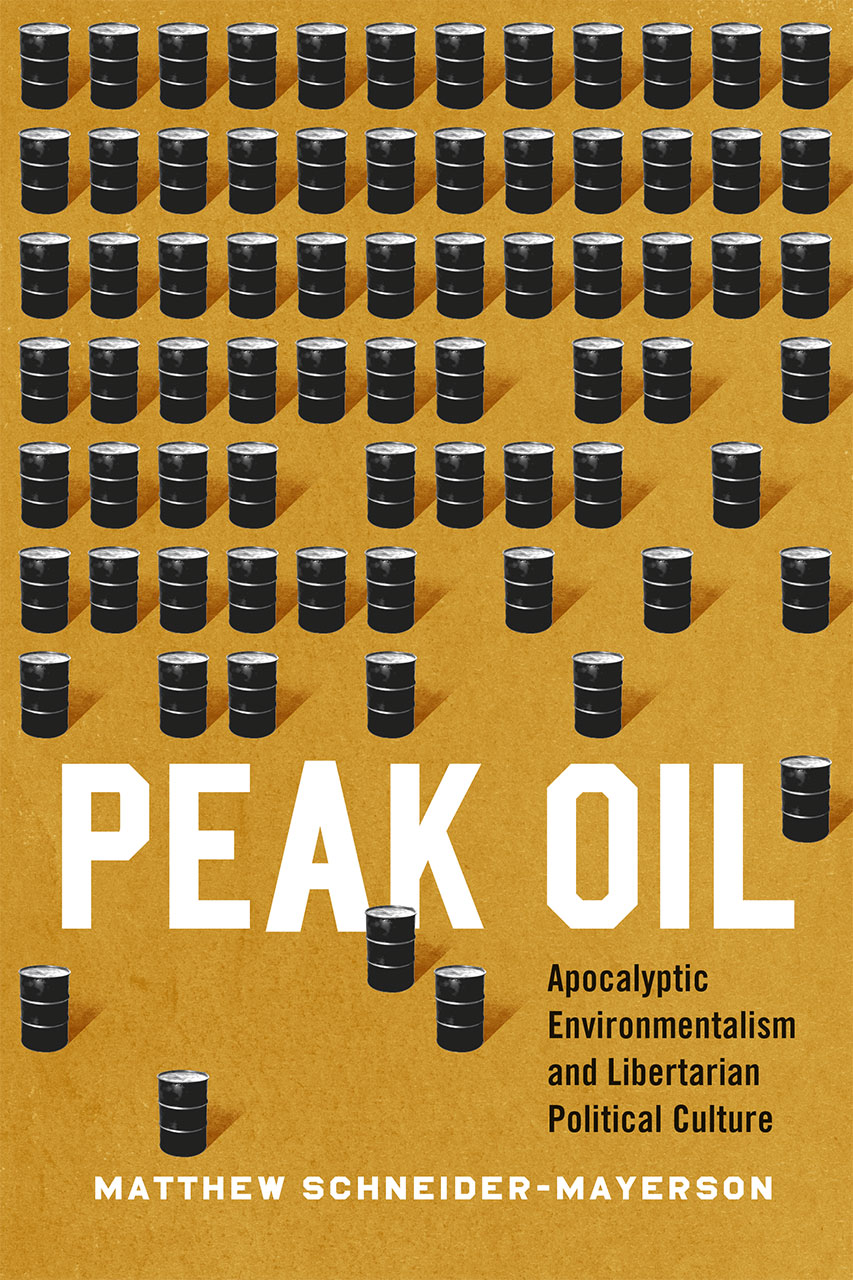
The primary focus of the book is on the broader topic of peak oil based on two large surveys Schneider-Mayerson conducted with “peakists” (people who believe that the global oil production is nearing or has already surpassed its peak and that this event signals a dramatic shift that will occur in global economics and society).
To contextualize this issue, Schneider-Mayerson focuses on environmental media a good deal throughout the book, including one chapter examining the influence of disaster films on conceptions of environmental crisis in the present and future, and another chapter on post-eco-apocalyptic white masculinity as it has been represented in Mad Max and the TV show Revolution.
Congrats to Matthew on this tremendous achievement. I have a feeling that folks will be keen to pair this book with Stephanie LeMenager’s recent book Living Oil and some of the great work by ecocinema and ecomedia scholars on this issue as well, such as Robin L. Murray and Joseph K. Heumann’s Film Quarterly article on the early Lumiere film “Oil Wells of Baku,” Peter C. Rollin’s chapter “Tulsa as an Oil Field Film: A Study of Ecological Ambivalence” in the collection The Landscape of Hollywood Westerns, and Nadia Bozak’s 2012 book, The Cinematic Footprint: Lights, Camera, Natural Resources.
The second edition of tiNai Ecofilm Festival (TEFF) 2015 and National Conference on Ecocinema recently concluded in BITS Pilani K. K. Birla Goa Campus. Spread over three days, from 08 to 10 October, 2015, TEFF 2015 screened twenty ecofilms, conducted a national conference with twenty paper presentations along with two workshops by eminent filmmakers and activists. The inaugural of the festival and the conference was held on 08 October 2015 at 06.30 p.m. at the auditorium of BITS Pilani, K.K. Birla Goa Campus.
This edition of TEFF also had a National Conference on Ecocinema on the theme, ”Celebrating Landscapes and Waterscapes.” Prof. Salma Monani, Gettysburg College, USA, and Rachel Carson Fellow, Munich, was the Chief Guest and keynote (Titled: Ecocinema Studies: Past, Present and Future) speaker for the National Seminar while Nandan Saxena and Kavita Bahl, National Award winning fillmmakers were the Chief Guests for the Film Festival. The inaugural film was Dammed directed by Nandan Saxena and Kavita Bahl after which there was a lively and meaningful interaction with the filmmakers. The discussion was moderated by Mr. Solano Jose Savio Da Silva, Department of Humanities and Social Sciences, BITS Pilani K. K. Birla Goa Campus.
An international ecodocumentary competition was organized as part of the festival for three categories: Indian Short Ecodocumentary, Indian Feature Ecodocumentary and International Ecodocumentary. Shifting Undercurrents, Directed by Rita Banerji, won the Best Indian Short Ecodocumentary award followed by Chintan Gohil’s A Commons Sense (Best Indian Short Ecodocumentary – Runner-up), The Red Data Book: An Appendix (Best Indian Feature Ecodocumentary) by Sreemith Sekar, Shrinking Shores ((Best Indian feature Ecodocumentary – Runner-up) by Ashish Rao, a French film, Jikoo, a wish (Best International Ecodocumentary) by Christophe Leroy and Adrien Camus and the Taiwanese film, The Lost Sea (Best International Ecodocumentary – Runner-up) by Hung Chun-Hsiu. 82 films were entered in all the categories from various countries and across India.
Click here to see the posters of the award-winning films
The conference saw around twenty papers presented by academicians and research scholars across India and Portugal. A workshop on ”Photography and Digital Filmmaking” supported by Sony India was conducted by Nandan Saxena and Kavita Bahl on the 08 & 09 October, 2015 and a workshop on ”Documentary as a tool for Social Change” was conducted by Saraswati Kavula, a filmmaker, organic farmer and activist, on 10 October 2015. More than 200 young ecoenthusiasts and students from across India participated in the event.
The directors of the festival are Prof. Meenakshi Raman, Head, Department of Humanities and Social Sciences, and Dr. Rayson K. Alex, Assistant Professor, Department of HSS, BITS Pilani, K.K. Birla Goa Campus and the chief coordinator of the conference was Dr. Reena Cheruvalath, Assistant Professor, Department of HSS at BITS Goa.
We invite proposals for papers exploring the theme of ‘Waste in Asia’ from the perspective of the humanities and social sciences, regarding both the present day and the past. Possible topics might include (but need not be limited to) waste collection and recycling, food waste and its prevention, packaging, dustbins, and other forms of material culture related to waste, garbage art, digital waste and waste-related literature. We particularly welcome papers that focus on social, political and cultural contexts influencing attitudes, practices and policies related to waste across Asia, as well as their social, political and cultural consequences.
We aim for this event to be truly cross-disciplinary and hope that the theme will attract anthropologists and sociologists, as well as historians, geographers, archaeologists and specialists in visual and performing arts, cultural studies, literature and film.
The conference will be hosted by the Leiden University Institute for Area Studies (LIAS) and funded by the Netherlands Organisation for Scientific Research (NWO). It is part of the activities undertaken within the framework of the ‘Garbage Matters: A Comparative History of Waste in East Asia’ project.
DETAILS
- The conference will open in the morning of Thursday 9Â June and will end on Saturday 11 June.
- The conference is open to the public, but those wishing to attend should register in advance by sending an e-mail to WiA2016@garbagemattersproject.com with ‘Registration: Waste in Asia’ in the subject line. No registration fees will be charged.
- The organizers will cover travel expenses (economy-class airfare to Amsterdam Schiphol Airport) for participants presenting accepted papers. Meals and accommodation will be provided free of charge for paper presenters.
- The language of the conference will be English.
SUBMITTING A PAPER PROPOSAL
- Deadline: 10 December 2015.
- Submit your abstract of 200-300 words in an e-mail (no attachments) to WiA2016@garbagemattersproject.com.
- The subject line should read ‘Abstract: Waste in Asia 2016’.
- Include a brief biographical statement (max. 150 words).
- We will let you know whether your proposal has been accepted by 10 January 2016.
Call for Expressions of Interest (EOI): Film Studies Association of Canada 2016 Conference
Film Studies Association of Canada 2016: Call for Expressions of Interest (EOI)
Panel Abstract:Â Ecocinema and Ecocritical Film Theory
This panel invites papers that undertake analysis of the assumptions, approaches, and philosophical orientations that presently characterize eco-critical labours in film studies. These analyses need not be purely theoretical or formally explicit. Critiques could be illuminatingly staged during examination of films and other moving-image texts. What approaches primarily obtain in this area? What theories of agency, audience, or activism? What theories best negotiate the intersection of film and materiality? Of what would an eco-reading consist if aimed at cinema unconcerned with the environment? What techniques from other disciplines may be productively brought to bear?
Please submit proposals to mtrono@mtroyal.ca no later than Dec. 4, although general inquiries are welcome at any time. Chosen candidates will be notified by Dec. 8.
Mario Trono, Associate Professor
Department of English, Mount Royal University
According to a recent story in the film industry trade paper Variety, “Veteran oil industry executive William Divine has launched production company Divine Discoveries Prods., which is aiming to portray the oil industry in a positive light.”
Although it might not seem like new news to us, the move is a reminder that people with money and power can wield tremendous ideological and political influence through media production. Of course, there is a long history of scholarly investment in mediated images of oil. So following the development of this new company may be a worthy project for a young scholar interested in emerging media and environmental discourse.
Call for proposals: Affective Ecocriticism
Although ecocritics have long tried to articulate complex emotional relationships to various environments, ecocritical scholarship has much to gain from the rich body of work on affect and emotion circulating within social and cultural theory, geography, psychology, philosophy, queer theory, feminist theory, and neuroscience, among other disciplines. The “affective turn” and concurrent trend toward new materialisms signal an opportune moment to conjoin affect theory and ecocriticism more deliberately. Concepts like Yi-Fu Tuan’s “topophilia,” Lawrence Buell’s “ecoglobalist affects,” and Ursula Heise’s “eco-cosmopolitanism” have helped foreground the affective dimensions of ecological thinking and feeling at various scales. Recent books—including Tonya K. Davidson, Ondine Park, and Rob Shields’ Ecologies of Affect (2011); Karen Thornber’s Ecoambiguity (2012); Adrian Ivakhiv’s Ecologies of the Moving Image (2013); Alexa Weik von Mossner’s Moving Environments (2014); and Heather Houser’s Ecosickness in Contemporary Fiction (2014)—have undertaken more sustained engagements with affect.
This surge of interest in affect marks a growing need for more scholarship at the intersection of affect and ecocriticism. Affect is ecological “by nature,” since it operates at the confluence of texts, environments, and bodies—including nonhuman and inanimate bodies. Affect theory disrupts discrete notions of embodied selfhood as well as static notions of environment and encourages us to trace the trajectories of what Stacy Alaimo has called trans-corporeal encounters that are intricate and dynamic. Likewise, material ecocriticism foregrounds the instability and processive nature of all environments and objects, but (unlike much affect theory) it takes environments seriously, as agents in generating and shaping affect.
This collection imagines a more affective—and perhaps, also, more effective—ecocriticism. We invite essays that work with affect and/or emotion theory in a range of texts (including literature, film, television, and visual art, as well as digital or physical environments) and in any of affect theory’s strands, including the history of emotions; the cultural study of emotions; cognitive and/or neuroscientific understandings of affect; the transmission of affect; and affect theory in a cultural studies vein, often understood (following Gilles Deleuze, Brian Massumi and others) as non-signifying, pre-cognitive bodily feeling. We solicit essays from established or emerging scholars that take up existing threads or investigate new ways that affect theory and ecocriticism connect. Essays might consider, for instance:
Palgrave Macmillan has expressed interest in publishing this collection as part of its new series: “Studies in Affect Theory and Literary Criticism.”
Please email a 500-word abstract and brief biography to Jennifer Ladino jladino@uidaho.edu by January 1, 2016.
My copy of the summer 2015 issues of ISLE arrived yesterday and I was thrilled to see a terrific contribution to ecomedia studies by Michelle Yates. The essay is titled: “Labor as “Nature,†Nature as Labor: “Stay the Course†of Capitalism in WALL-E‘s Edenic Recovery Narrative”.
You can access the full text of Michelle’s article through the ISLE website. Here’s an excerpt:
““What if humanity left and some little robot got left on and kept doing the same thing forever?†Director Andrew Stanton and his Pixar colleagues chewed on this question over lunch one day in 1994. Though left unanswered for over a decade, the question eventually resurfaced to inspire the 2008 animated blockbuster WALL-E, Pixar’s ninth financial success in a row, which led its opening weekend with an estimated $62.5 million in sales. Since its 2008 release, when it won Best Animated Feature at The Academy Awards, Best Film of the Year from the Los Angeles Film Critics Association, and Movie of the Year from the American Film Institute, critics have been raving about WALL-E, with Joe Morgenstern at The Wall Street Journal going so far as to call the film a masterpiece on par with classics like Singin’ in the Rain. In fact, the description of WALL-E as a masterpiece is critical commonplace, and this appears, on the surface at least, to stem from its unlikely success as an animated kid-flick with a feel-good message about Earth’s impending doom. Who else but Pixar could offer its audiences—in the very same year of capital’s most serious economic crisis to date—the fantasy that they could actually face, and maybe even bounce back from, the consequences of their own habituated overconsumption—and this by way of a trash-picking protagonist who is all at once an unwaged worker, a happy-go-lucky heroic figure, and a cuddly automaton?“

